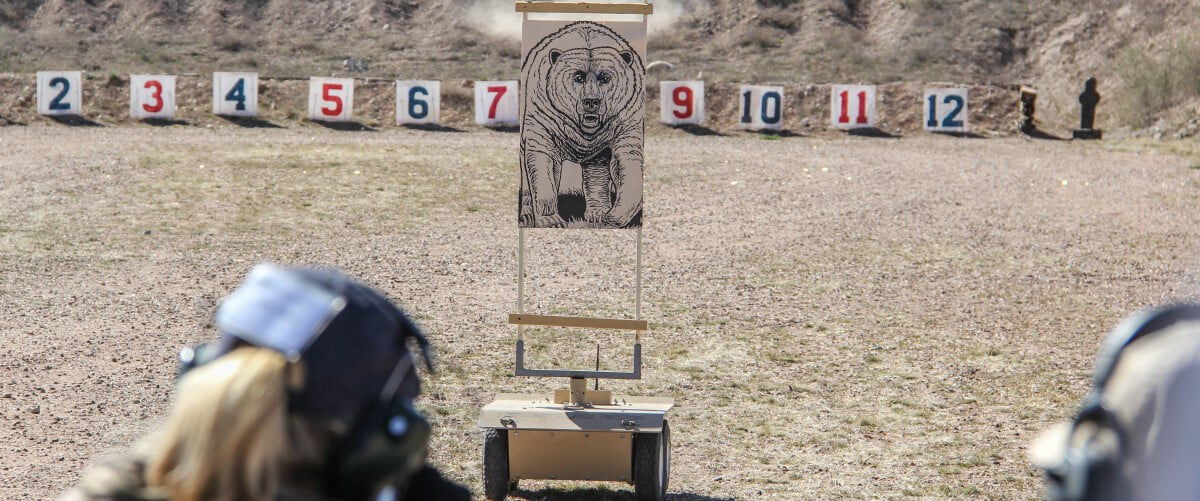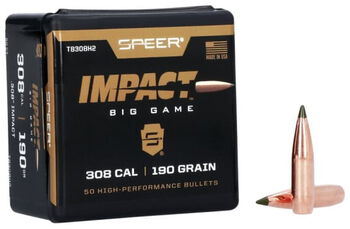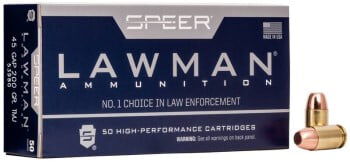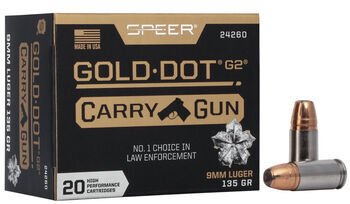
Like so many other Americans, I grew up hunting and shooting, but it wasn’t until I was in my twenties that I took my first firearms course. That class was required at the time to obtain a concealed carry permit in my state, and while it did cover many of the basic principles of firearms safety and handling, it did not prepare me to face a deadly encounter nearly as well as the next-level training I’ve received since that time.
I’m not disparaging concealed carry curriculums or instructors, but these courses simply lack the time needed to cover the more in-depth aspects of defense, making next-level training a worthwhile investment. However, it can also be expensive and time consuming, so it’s worthwhile to take a closer look at the pros and cons associated with advanced firearm education in its various forms.
What Next-Level Training Covers
We most often associate next-level training with advanced self-defense classes with pistols, but it comes in a variety of forms. For example, training centers such as Gunsite Academy, Vortex EDGE, and FTW Ranch in Texas offer next-level courses that are specific to big game hunting with a rifle, and there are long-range shooting courses that focus on preparing students for competition. Some of these training centers offer specialized courses on stopping dangerous game or improving performance with a red dot-equipped pistol.

Impact Bullet
The Impact component bullet blends molecularly bonded construction and the Slipstream polymer tip for extreme accuracy, deep penetration at mid-range, and consistent low-velocity expansion at long distances.
Buy NowMany of these classes have prerequisites. For example, Gunsite Academy’s Team Tactics course requires competition of its introductory Pistol 250 class. Some training centers require an entry-level handgun course or proof of a previous concealed carry course. The content and curriculum of next-level training varies significantly, but most instructors and training centers offer a detailed list of the skills or experience students are expected to have prior to enrollment.
It's important to find a course that fits your skill level. Some courses—such as the Gunsite 250 class—are suitable for those with relatively limited experience because the class covers fundamentals as well as more advanced skills and lasts for five days. Shorter, more intense and highly specialized classes might be too much for relatively inexperienced shooters. For example, Gunwerks offers a Long Range University near its Cody, Wyoming headquarters. The L3 course takes place on a private ranch with steep uphill and downhill shots, and wind is always a consideration. For novice long-range shooters, this would likely be too much because there’s an expectation that you understand the concepts taught in L1 and L2 classes. Getting the most from any next-level course requires you to be honest with yourself and your instructors regarding your skill level, and just because you’ve been shooting for decades doesn’t mean you automatically have the skills to perform at the highest level.
What Next-Level Courses Offer Shooters
When you’ve enrolled in a quality next-level course that’s suitable for your skill level, you can expect instructors to help improve your performance. You should be challenged. Then again, if you’ve already mastered all the skills taught in the course (or just think you have), you’ve wasted your time and money. Keep an open mind.

Lawman Training Handgun
Hit the range hard with training ammunition that’s closely matched to self-defense loads.
Buy NowNext-level training is primarily about taking the basic skills you learn in entry-level courses and applying them to practical, real-world situations. Most entry-level self-defense instruction involves shooting stationary targets from a relaxed, standing position in full light and with no time constraints. As you progress through next-level training, you’ll be expected to add elements that will make you a more dynamic, well-rounded shooter. In self-defense courses this will likely involve moving and shooting, performing reloads, transitioning between targets, using cover effectively, and shooting with time constraints. Higher-level courses might add elements like low-light conditions or room clearing.
We most often associate next-level training with defensive handguns, but hunters can benefit from advanced training as well. FTW Ranch’s SAAM (Sportsman’s All-Terrain, All-Weather Marksmanship) is one of the most highly-respected next-level hunter training courses in the nation. Students are expected to make shots at varying distances under actual field conditions, which are invaluable skills in the field. Knowing when to shoot—and when not to—are key takeaways from this course.
Quality Instruction
There are lots of next-level shooting courses available, but don’t necessarily enroll in a class imply because it is close to home. Read reviews from previous students and ask for references from shooters who have taken the courses. Good courses are student-focused, not simply a platform for the instructor to show off their shooting skills.

Gold Dot Carry Gun
Compact pistols have never offered this level of protection. We’ve built upon the law-enforcement proven Gold Dot G2 bullet, optimizing the design and loading to provide superior feeding, ballistics and terminal performance through compact concealed handguns.
Buy NowThe reason I’ve listed the above courses is because I have attended them all, and they’ve provided me with excellent training. Quality shooting instruction boils down to good instructors, good facilities, solid curriculum, and a safety-first mindset. If any of these elements are missing, you’ll be disappointed—or worse.
It’s also important to understand that instructional courses might differ in methodology and teaching strategies. There’s a sign at FTW Ranch that says their instruction is, “A Way,” meaning that it’s not the only type of instruction that works. I appreciate their candor and straightforward approach to instruction.
It’s worth reiterating, however, that simply because you know someone who claims to have extensive shooting experience does not make them a qualified instructor. This might be because they lack the ability to relate their knowledge to students, and they might not be able to accurately address issues you’re having with your shooting.
Is It Worth it?
Quality instruction is rarely cheap, and some courses can cost several thousand dollars for a few days of instruction. Only you can decide whether next-level training is in your budget, but I can attest to the value of advanced instruction. I’ve made shots in the field while hunting that I likely wouldn’t have made without proper training, and I feel confident that my instruction in defense offers me a substantial advantage in a life-and death situation.